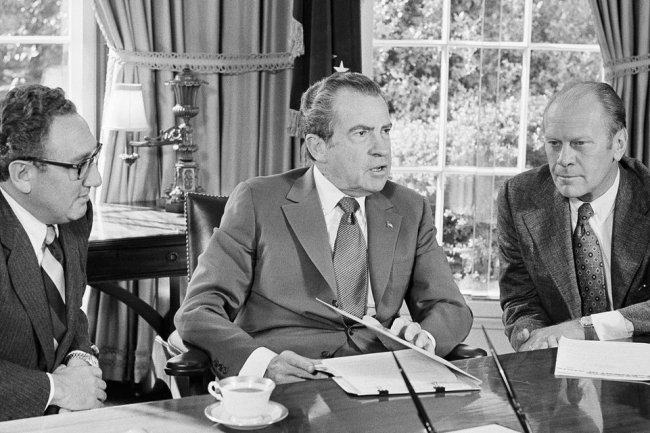The Bank of Japan Admits Market Reality
Better to abandon yield control now while global conditions are benign. By The Editorial Board Updated July 28, 2023 6:14 pm ET Bank of Japan (BOJ) in Tokyo on Friday Photo: kimimasa mayama/Shutterstock The Bank of Japan on Friday took another step toward normalizing monetary policy—or did it? Add confusion to the list of risks from decades of policy experimentation by the central bank in the world’s third-largest economy, as investors decipher the BOJ’s latest moves on yield-curve control. The central bank kept its policy rate at minus-0.1%, leaving Japan as the only major economy in which the key rate rema


Bank of Japan (BOJ) in Tokyo on Friday
Photo: kimimasa mayama/Shutterstock
The Bank of Japan on Friday took another step toward normalizing monetary policy—or did it? Add confusion to the list of risks from decades of policy experimentation by the central bank in the world’s third-largest economy, as investors decipher the BOJ’s latest moves on yield-curve control.
The central bank kept its policy rate at minus-0.1%, leaving Japan as the only major economy in which the key rate remains negative. But the BOJ also loosened its policy of managing the yield of 10-year Japanese government bonds (JGBs). Previously the BOJ intervened in the market to enforce a cap of 0.5%, but now Governor Kazuo Ueda says this level is only a “reference,” whatever that means. The BOJ instead will commit to purchase 10-year JGBs at 1%, suggesting this is now the effective upper limit.
Mr. Ueda had little choice. As mild inflation has returned to Japan, investors have speculated on and off for months that the BOJ would have to start normalizing policy. Speculator probes in December forced the BOJ to widen the control band to an upper limit of 0.5% from 0.25%. New tests of the 0.5% cap were inevitable, which would have forced the BOJ to buy ever larger quantities of JGBs.
The central bank already holds more than 50% of all JGBs outstanding as a result of quantitative easing and yield-curve control, so there wouldn’t have been much of a true market the longer the policy ran. This has emerged as one of the great weaknesses of yield-curve control as a monetary tool: As soon as investors decide they disagree with the policy, they can force the central bank to buy unlimited quantities of bonds to defend the peg.
But if the central bank is stepping away from yield-curve control, why not say so? Investors interpreted Friday’s decision as a form of monetary tightening, causing the yen to appreciate relative to the dollar, and the Nikkei Stock Average fell 2% at one point during the day. The yield on 10-year JGBs briefly reached 0.575%, the highest level in nearly nine years.
That’s probably the correct interpretation, but Mr. Ueda appears to be clinging to ambiguity around the policy that risks fueling more speculation. The BOJ has plenty of reason to be nervous about normalization. Its maintenance of loose policy as its major-economy peers have tightened over the past year has caused a significant depreciation of the yen.
This induced foreign investors to pile into Japanese shares in particular, while also goosing the yen-denominated earnings of Japanese companies with overseas revenue—pushing the stock market to new heights. Reversing these trends will be risky. All the more reason for the BOJ formally to abandon yield-curve control soon, and before investors have a chance to probe the new cap and add future market tests of the policy to the long list of financial risks facing Japan.
The rest of the world has managed (so far) to transition to higher interest rates with minimal financial fallout. Japan’s best hope for doing the same is to abandon its least conventional, least successful policies while global conditions remain relatively benign.
What's Your Reaction?













